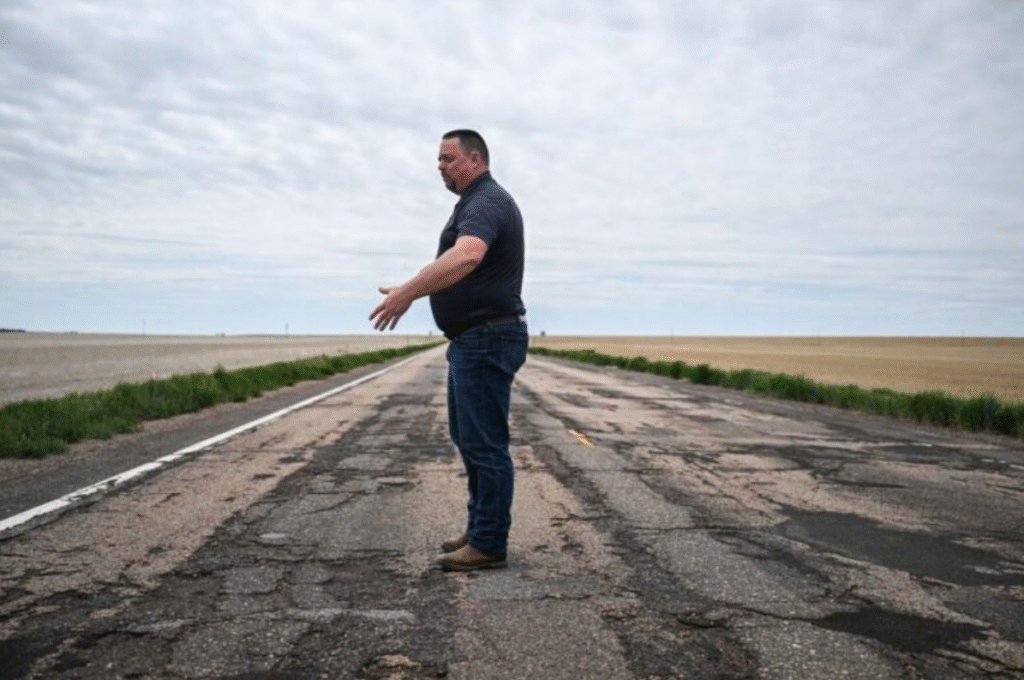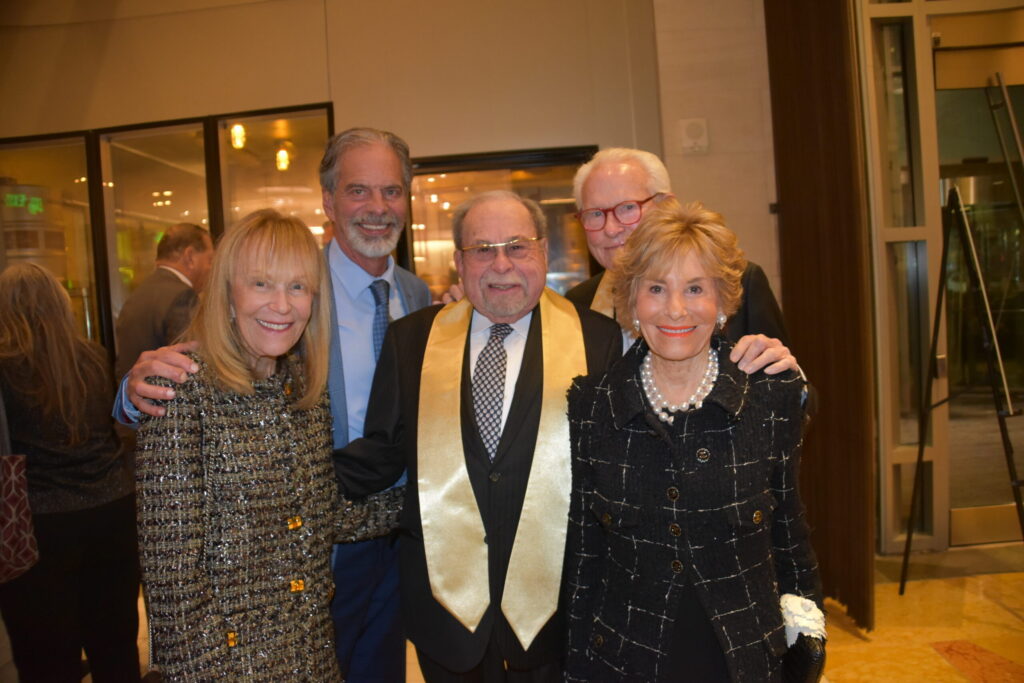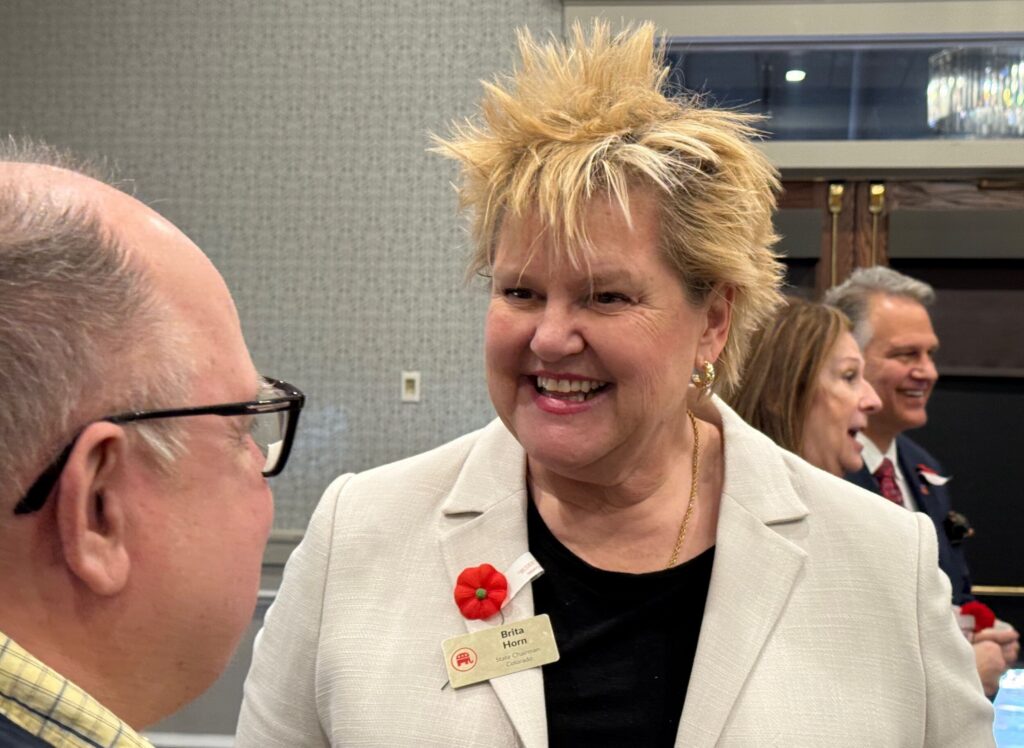‘I felt this sense of peace’: Amid CBI lab scandal, Colorado man gives first interview since release from prison
Michael Clark awoke with a start at his usual time, just after 5 a.m., his eyes adjusting to the darkness, his brain gauging the surroundings that felt familiar yet also somehow foreign.
What struck him most that first morning was the quiet.
It had never been quiet in prison. The bang of guards’ heavy boots against metal stairs. The gurgle of aging plumbing with every flush that echoed deep within the walls of Colorado’s Fremont Correctional Facility. The incessant din of too many voices.
Then he realized. He was home.
At least for now.
The night before, on April 14, Clark was released from custody on bond after 12-and-a-half years in prison, serving a life sentence without parole for a murder he has said for 30 years he did not commit.
Michael Clark released after spending 12 years for murder he maintains he didn’t commit
“I felt this sense of peace,” he said of that predawn moment, his wife asleep by his side. “I felt whole.”
Clark spoke to The Denver Gazette exclusively in his first interview after being released.
Boulder County District Judge Nancy Salomone vacated Clark’s first-degree murder conviction on April 11 after it was revealed the DNA evidence once used against him was now suspect.
It was a stunning first in the wake of a scandal that enveloped the Colorado Bureau of Investigation’s forensic lab and could take years to untangle.
Clark was found guilty in October 2012 of killing Marty Grisham in Boulder 18 years before. He had been a suspect once but never arrested. The case went cold then later was revived largely on the strength of a DNA analysis by CBI’s once most esteemed forensic scientist, Yvonne Woods.
Woods, who goes by Missy, testified at Clark’s trial that the DNA she extracted from a small jar of Carmex lip balm, found the morning after the murder outside Grisham’s apartment, was a partial match to Clark’s, presumably putting him at the scene.
It was enough to convince the jury, and Clark was sent away for life.
Little did he know he was on a collision course with something never before seen in Colorado.
There was something very wrong and very hidden going on in the state’s crime lab. Woods for years had been the state’s go-to expert in tricky DNA cases. Her star shined brightly and few dared challenge her. She testified in hundreds of criminal cases. It remains unclear how many convictions she helped secure.
Then it all fell apart.
And Michael Clark became a cautionary tale.
Time lost
Missy Woods now stands accused of intentionally deleting data, manipulating procedures, and compromising criminal evidence for decades. She faces 102 felony counts alleging systemic misconduct and is awaiting trial.
So far, CBI acknowledged finding problems in nearly one in 10 of the more than 10,780 cases she worked during her 29-year career at the lab. She retired with a pension just before the scandal broke rather than be fired.
The magnitude and outrage prompted Boulder County District Attorney Michael Dougherty last year to agree to a retest of the DNA evidence in the Clark case using an independent lab in Virginia.
The findings came back in March and showed that in a new DNA profile taken from the Carmex, Clark could be statistically excluded.
Dougherty said in his court filing last month that while his office believed there was still strong circumstantial evidence against Clark, the “totality” of problems surrounding the case convinced him that setting aside the original conviction was the right thing to do. The judge agreed.
Vacating a murder conviction is considered extremely rare.
Clark was released on $100,000 bond. He remains in pre-trial status, charged with Grisham’s murder just as he was after his arrest in 2012. It is almost as if the clock has turned back. Almost.
There could be a new trial, a plea deal with credit for time served, or the case could be dismissed entirely. Clark’s attorney is pressing for the latter. Dougherty said a decision could come at a June 6 hearing in the case.
“In any cold case we have to go back and re-evaluate the evidence, relocate key witnesses and determine whether a case can be proven beyond a reasonable doubt and what is the likelihood of conviction,” Dougherty said in an interview earlier this month.
Chuck Heidel, the now-retired Boulder police detective who worked the case, told The Denver Gazette last fall he remains convinced Clark is guilty. The Grisham family had no comment, the district attorney’s office said.
As for Clark, waiting in limbo, he allows himself to see only one outcome.
“I feel out and I feel perfectly confident that I am staying out,” he said.
In his years behind bars, he never lost sight of hope he would someday be free. He counseled other inmates to do the same, even those like him doing life. It is what keeps the despair at bay.
The days were not so bad. He likes structure. He kept busy by working out, coaching others, teaching a motivational course, working as a clerk for prison programs. It was evenings when loneliness would seep through.
Time lost is gone forever.
He entered prison at age 37, he is now just shy of 50.
His voice goes ragged, and his eyes fill with tears as he talks about not being there as his three children moved from childhood to adolescence and young adulthood. They visited often and talked on the phone. It wasn’t the same.
“I can’t get it back,” he said of what was missed, “They can’t get it back.”
He was convicted the day before his son, Kernan, turned four. Back then the little boy was still in a car booster seat. When Clark was released last month, his son, now 16, drove his father home.
The case
The number of cases potentially tainted by Woods continues to grow.
In the beginning there were about 30, uncovered after a young forensic biology intern alerted lab supervisors in September 2023 that she found something curious in Woods’ work. As CBI began its look through past cases, the number grew to more than 600. Then 809. By late last year, it was 1,003.
On April 10, CBI updated the number again on its website to 1,022.
Colorado’s DNA scandal: Hundreds of cases affected, but very few retests ordered
Specifics about the newly added cases — like all the others — were not disclosed to the public. Only district attorneys are told about potentially affected cases and only they, along with law enforcement agencies, can ask the agency for retests. CBI said in an email that as it continues to review Woods’ cases, the number could climb higher.
Notably, though, the Clark case has never been included in CBI’s list. The omission has left defense attorneys in the state to wonder how many more are missing.
Clark was a teenager when Grisham was gunned down in his doorway around 9:30 p.m. Nov. 1, 1994. Back then, the 19-year-old was often on the edge of trouble.
He became the prime suspect almost immediately after admitting to stealing a fistful of checks when he had been alone in Grisham’s apartment about a month before the murder. He then forged them for a total of around $4,000.
Authorities theorized Clark killed Grisham to cover it up. He had talked about wanting to leave town quickly to join the U.S. Marine Corps. He briefly owned and then ditched the type of gun that could have fired the fatal bullets. It was never found.
Clark initially lied to the police about how he got the gun, concocting a story about someone leaving it in his car. He later admitted he got it from a friend but threw it in a dumpster because having a gun spooked him.
And while in custody on the check charges, another inmate told authorities Clark “kind of nodded” when asked if he did it, referring to killing Grisham. Clark later called the accusation absurd and has remained steadfast then and now that he killed no one.
Clark was not arrested for murder back then. Prosecutors worried the circumstantial case was shaky. They had no gun, no witnesses, no physical evidence, and the timeline was a stretch to put Clark at the scene.
Then 15 years later, Boulder police Det. Heidel entered the case to give it a fresh look. Forensic science had improved so he fished the Carmex jar out of evidence storage and sent it to CBI to see if it could be tested for DNA. It landed with Woods.
Her findings gave police and prosecutors the missing puzzle piece.
Missy Woods: Disgraced former CBI DNA expert headed to trial on felony charges
Fighting back
There was a moment, not long after the conviction, that Amy Clark, Michael Clark’s wife, said defined their way forward.
She doesn’t remember which facility or the exact date, just that she had to talk to her husband by prison phone with a plate of heavy glass between them.
“What are we going to do?” he asked, the panic unmistakable.
“You are going to take care of yourself there, and I am going to take care of our kids and me here. And we are going to stay whole,” she replied.
She said she has never considered moving on.
In 2018, after a direct appeal failed, she turned to her family who sold some real estate and chipped in to find a legal heavy hitter. Together they cobbled together $100,000 and hired Adam Frank, a Denver civil rights and defense attorney.
This was his kind of case. In law school in New York, his first summer internship was with the Innocence Project, a legal advocacy and investigative organization that works to free the wrongly convicted.
“There was nothing I ever wanted to do more,” Frank said, adding, “I’m a deeply, deeply stubborn human being.”
Although statistics are elusive, legal experts estimate that as many as 10% of those in prison today were wrongly convicted either because they were innocent or did not get a fair trial.
The most common causes of wrongful conviction are police or prosecutor misconduct, false confessions, mistaken eyewitness testimony, bias, or unreliable evidence — including questionable forensic practices and results.
Nearly one in four exonerations nationwide are due to false or misleading forensic evidence, according to experts.
While DNA evidence is considered scientifically sound, the issue in Colorado is whether it was applied correctly, said Jud Lohnes, staff attorney for the Korey Wise Innocence Project, part of the University of Colorado law school. Although the group shares the same mission as the national organization, it is separate.
When Frank first studied the Clark case, he said he was not looking to prove innocence but rather if there was any judicial impropriety. Over time he grew to believe both were true.
He hired Phillip Danielson, a University of Denver professor and expert in forensic genetics, to review Woods’ findings and testimony. Danielson found both flawed, assessing them as incomplete, oversimplified and, at worse, inaccurate.
Frank also hired a private investigator to track down former jurors. One said she had visited the crime scene during the trial and another admitted there were frequent discussions about the Carmex jar before deliberations. The jury was specifically warned against doing both.
In February 2019 — more than four years before the CBI scandal broke — Frank filed a 125-page motion highlighting alleged problems in Clark’s original trial, most notably the suspected juror misconduct, and that the public defender failed to call an independent DNA expert to challenge Woods’ conclusions.
He asked for an evidentiary hearing. Boulder County District Judge Andrew Hartman said no.
It could have been over then. The family’s money had run out. But they refused to give up.
Hartman’s denial was appealed. Frank maneuvered to be appointed to represent Clark as an indigent client.
In December 2023, the Colorado Court of Appeals ruled Hartman had erred and an evidentiary hearing was ordered on both juror misconduct and the DNA challenge.
It is not lost on Frank or the Clarks that if that hearing had been granted when it was requested, witnesses might have exposed the problems at CBI years earlier.
In CBI’s internal investigation, released last year, it was disclosed that problems with Woods were reported to lab managers in both 2014 and 2018 but there was no real consequence. And neither the public nor the legal community ever knew.
“You trust in the system, you say this can’t happen,” said Amy Clark. “That’s why we want to talk to people because we want people to know it does happen and we didn’t understand that.”
“You trust the system,” her husband interjected, “until you are in the system.”
Home
A recent trip to the neighborhood grocery store took three-and-a-half hours. Around every corner, down every aisle, the Clarks were stopped by someone who recognized them from TV or social media.
Everyone, it seemed, knew the story.
Some wanted to chat, others just shook Clark’s hand. Still others shyly asked if they could give a hug. In the little mountain town of Dillon, Clark had become an unlikely celebrity.
And much to his surprise, so far, there has been no backlash or negative reactions in the community.
“I feel awkward at times,” Clark said when he notices someone staring, “then they will finally introduce themselves and they know Amy, or they know the case, and they are just excited and happy to see me.”
No matter how much they both longed for Clark’s release, the reality takes adjustment.
In these early days they must learn to be together again, to mold their routines to include someone else. They live with Amy’s parents. Clark wants to be helpful, fixing things around the house, doing the dishes, baking banana bread. But sometimes when his wife starts a chore, Clark has already done it.
“Both of us are trying not to step on each other’s toes,” Clark said.
“Emotionally this is exactly what I want. I’ve always wanted Mike home. He’s my future,” said Amy Cark, adding, though, “It is still sort of surreal. The logistics are the hard part.”
Where will they live? With her parents still or find their own place? Stay in Summit County or move? If they do, what about their son who has two more years in high school? Their daughters are now young adults.
Will she continue teaching? What kind of job does Clark get, or want?
“There are so many questions that it is a little overwhelming,” she said.
And of course, the biggest ones of all — what happens if he is retried, or sent back to prison?
“You control the things that you can control,” Clark said, “I can’t control what DAs do and how they think, and I’m definitely done trying to rationalize and understand.”
“A new trial would be annoying,” agreed his wife, “but you live your life, and you build up and keep going.”
For so long she kept her feelings in check, a protective instinct to survive what life threw at her family.
“I had to learn to live in a way that I don’t let my emotions run my life,” she said. “I couldn’t raise kids being angry all the time, being sad all the time. They don’t deserve that.”
Anger is the emotion they are both trying to navigate.
“Let’s be clear, I do get angry. But I’m more angry at this thing we call a system and the people who run the system. She’s just a person,” Clark said of Woods. If given the chance, he said he has nothing to say to her.
“If there’s one thing I learned in 12 years in prison and the many thousands of people I met, it is that people do the most outrageous things for no reason that anybody can understand,” he said. “Me being angry doesn’t do me any good. It doesn’t change a thing.”
So, they wait. They stay grateful for each other, their children, their family, and those who have supported them through it all. They try to rebuild.
If things fall apart, they have already learned the hard lessons of coping.
Frank, Clark’s lawyer, said it can be rare for a family in their situation to stay intact.
“I end up representing a lot of people who, for various reasons, because of the particular incident or because a course of things over life, most of the time, by the time someone has gotten to the point that they are facing really serious charges, they have burned most of the bridges in their life,” he said. “The attitude someone has to take to survive in prison can become the exact same thing that pushes away everyone in the outside world.”
He does not see that in this family. Their perseverance and priority to stay connected and committed to each other and their kids, is unique, Frank said.
“You set your sail for how you live your life,” Clark explained. “Even if you fall off track you know your end goal and keep your destination in mind.”
For now, the destination is home.
Colorado Politics Must-Reads:

























